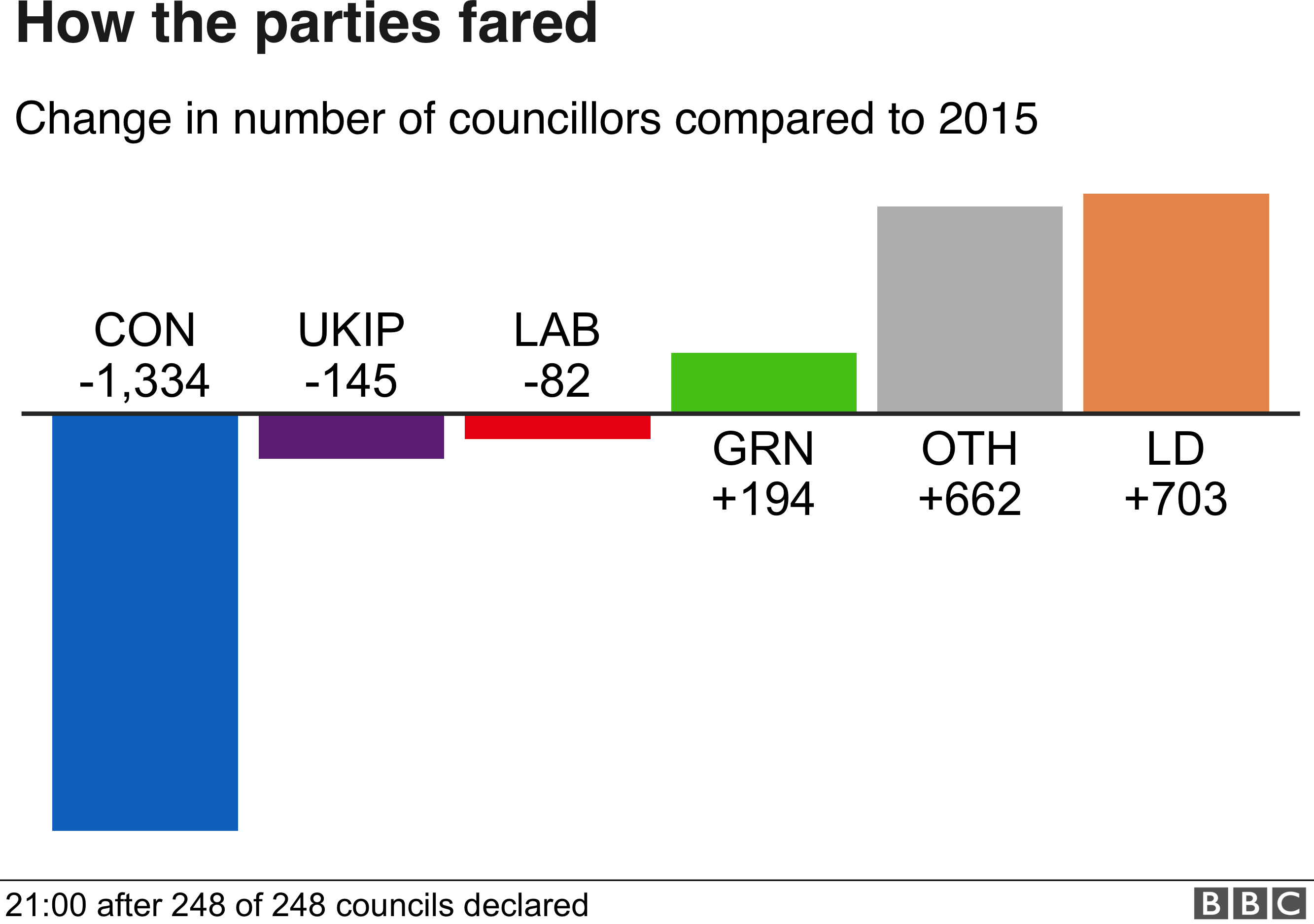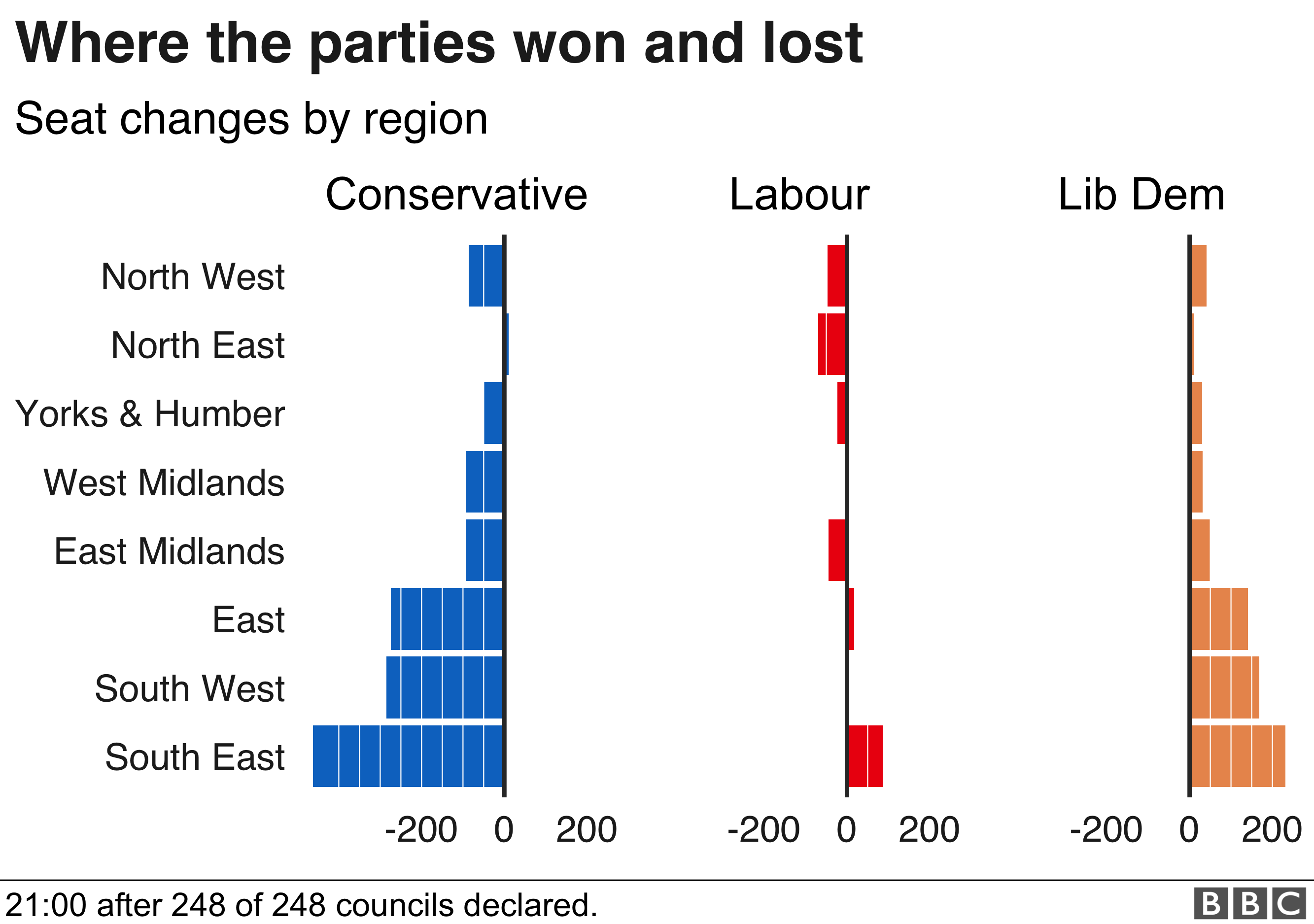- 03 May 2019 20:01
#15002403
Lib Dems are the most clear victors in these local elections doubling their seats and taking over entire city councils from the Tories unseating Tories with over 30 year constant presence. Also a great victory for the Greens and the Independents.
The Tories suffered huge losses. Labour got bruised but it's still standing.
The Brexit party did quite bad. And the party of traitors with the stolen name nowhere to be seen.

If any message is clear then that message is quite obvious. The Lib Dems are the only British party unequivocally against Brexit and they made the largest inroads.
Of course European people can vote in local elections across Europe and they certainly came out to do that I presume.
The Tories suffered huge losses. Labour got bruised but it's still standing.
The Brexit party did quite bad. And the party of traitors with the stolen name nowhere to be seen.

If any message is clear then that message is quite obvious. The Lib Dems are the only British party unequivocally against Brexit and they made the largest inroads.
Of course European people can vote in local elections across Europe and they certainly came out to do that I presume.
EN EL ED EM ON

...take your common sense with you, and leave your prejudices behind...

...take your common sense with you, and leave your prejudices behind...













 - By wat0n
- By wat0n - By Tainari88
- By Tainari88